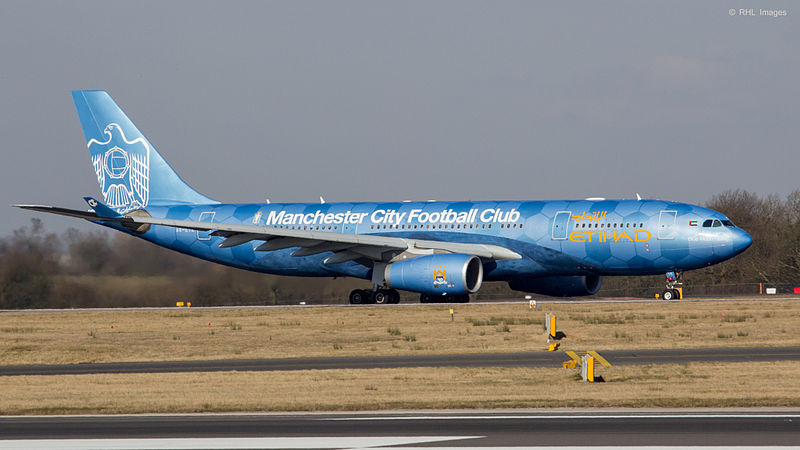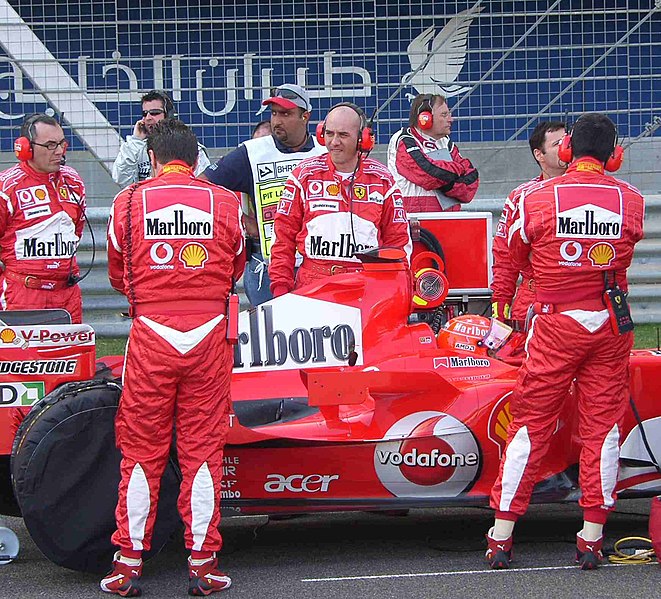
Sports Business is big business. Through the sponsoring of sports teams and events, the world’s biggest brands are demonstrating the power of globally-reaching sports in the business world.
The IBM logo will be one of many that you will see prominently displayed during the Wimbledon tournament, Shell’s presence on Ferrari’s 2014 Formula 1 cars is difficult to miss and the English Premier League is the “Barclays Premier League”.
In this Massive Open Online Course (MOOC), prepared by Business Information Technology students, we look at the legal, financial, and marketing aspects of sports business to understand some of the world’s biggest sports teams, events, and brands from a business perspective.
Legal issues in Sports Business
There are a number of legal issues to consider in sports business including the governance of operations and the pivotal legal cases from football, cycling, and American football.
The increasing global popularity of sports such as football and the resulting operation of sporting teams and events as large business enterprises has consequently increased the importance of law within sport.
Key areas of sports law

There are three areas of conventional law that, through their application to a number of high-profile sports related cases, have become particularly relevant to a sports business context. These areas are tort, contract and competition law.
Tort Law
Tort is regarded as a “civil wrong” when one party is considered to have been unfairly injured, harmed, or otherwise caused loss to another. An example from sports business includes an injury caused through use of defective sports equipment. However, in more recent applications, tort law could include the injury of one participant by another during a competitive sport.
In 1973, Dale Hackbart initiated legal proceedings against a competitor, in what was a precedent-setting case. Charles Lee Clark, of the NFL’s Cincinnati Bengals, had deliberately injured Hackbart – who at the time was playing for Denver Broncos. It was ruled that the deliberate infliction of injury – and the resulting premature end to Hackbart’s career – could constitute tort.
Contract law
In law, a contract is the agreed obligation of one party to provide goods or services to another. The agreement is one that is voluntarily reached. Contract law concerns the enforcement of the terms of the agreement, or the compensation of a wronged party if one or more of the contract terms are not met.
In 2004, Chelsea striker Adrien Mutu was found to be in breach of the contract he signed with the club when he tested positive for an illegal drug. As a result, his contract was terminated. Chelsea had paid £14.5 million to Mutu’s previous club Parma for the player, and in an effort to recover this transfer fee, approached football’s governing body, FIFA. FIFA’s Dispute Resolution Centre found in 2008 that Mutu had “breached contract without just cause”, and ordered Mutu to compensate Chelsea for the value of the transfer fee.
Competition law
Competition law concerns the regulation of business practices that might be deemed threatening to market competition. In particular, it concerns the prevention of the abuse of market position by dominant market firms, and the prevention of collusion between leading companies.
In 2010, Virgin Media and BT, a competitor of the British broadcasting company BSkyB, approached the industry regulator Ofcom regarding the practices of BSkyB as a dominant market player – with reference in particular to BSkyB’s prohibitive wholesale pricing of its Sky Sports channels. At the time, BSkyB was the main holder of live Premier League broadcast rights, and so the only means of competitors displaying live games was through the wholesale purchase of Sky’s channels – particularly Sky Sports 1 and Sky Sports 2. Ofcom ruled that BSkyB’s pricing of these channels to its competitors constituted anti-competitive practice, and ruled that it must apply discounts to the wholesale of its channels to competitors.
Activity
The recent Law In Sport article details changes in Rugby based on previous legal cases involving personal injuries. Using information from the article, summarise:
- What were the reasons for the legal cases cited in the article?
- What changes were implemented into Irish Rugby?
- How could these changes affect the sport itself?
Post your answers, and thoughts, using the comments section below.
Additional resources
- Hackbart VS Cincinnati Bengals Case Brief
- Book – Lex Sportiva: What is Sports Law?
- Law In Sport – Adrien Mutu Contract Breach
- Law In Sport – UEFA Financial Fair Play
- The Guardian – Sky VS BT Court Case
- Mondaq – Lance Armstrong Contracts Breach
Finance in Sports Business
In this section we consider different ‘business entities’, and how the structure of a company can affect the way a sports business is financed. Using different examples we’ll investigate the benefits – and drawbacks – of different operating structures.
Business Entities
The way a business can obtain finance is usually determined by how the business is structured. Businesses can be divided into four distinct operating types.
A Sole Trader is a business entity owned and run by one individual. Importantly, there is no legal distinction between the owner and the business. This means that the owner receives all of the business’s profit – but has unlimited responsibility for all of the business’s debts.
A Partnership is based on similar organisational principle to that of a sole trader. A key difference is that the responsibility for the running – and therefore control – of the business, the profits, and the liability for the business’s debts are shared among the owning partners.
A corporation – or company – is recognised as a separate legal entity from the individual (or individuals) who own or operate the business. The owners of a company are called ‘shareholders’ as their interest in the company is represented by the size of their stake or share. Typically, companies have limited liability which means that a shareholder’s liability for the debts or losses of the business are limited to their investment in the company.
Similar to a corporation, a co-operative is a separate legal entity. One crucial difference lies in the fact that a co-operative is owned and controlled through membership. Members will typically have a particular interest in the activity of the business – often as employees of the business, or as consumers of the business’ products or services.
Finance in Sport
Co-operatives
Some useful examples of co-operatives in sport can be found with Spain’s leading football clubs: Real Madrid and Barcelona.
In the case of Barcelona, the club is able to generate funds from the annual fee that its 175,000 registered members pay. A report by Co-operatives UK reveals that a number of European clubs opt for a co-operative structure to ensure the stability of the business.
Privately held companies
Companies are considered to be privately owned if the company does not trade its stocks or shares publicly. Instead, company shares are owned and traded privately by a relatively small number of shareholders. An example of a privately owned sports company is Manchester City Limited. The club is wholly owned by Sheikh Mansour, through the private equity company Abu Dhabi United Group. Privately owned companies tend to be financed through the profits the company is able to generate, or through investments that shareholders are willing – or able – to make.

Privately owned companies benefit the owners by guaranteeing full control of the operation of the company – as opposed to publicly held companies, where the interests and expectations of company shareholders must be considered in making decisions about the running of the business. For example, Wolverhampton Wanderers (1986) Limited, which owns Wolverhampton Wanderers Football Club, is ultimately controlled (through a parent company, W.W. (1990) Ltd.) by Steve Morgan.
Publicly held companies
In contrast, publicly owned companies will offer securities – stocks and shares – for sale publicly. Shares in the company are typically traded through a stock exchange, such as the London Stock Exchange. An example of a publicly owned company is Manchester United Plc., where shares of the company are traded through the New York Stock Exchange. The sale of company shares is seen as a good way of raising finance for an organisation where an investment is required, but where company profits or shareholder investment are not available.
Shares in previously privately owned companies can be made available to the general public through what is called an “initial public offering” (IPO). This is seen as an effective way to generate capital for the advancement of the company.
Money raised from the sale of shares in a company is most often re-invested into the company; for example, The Green Bay Packers (an American Football team competing in the NFL) invested money raised from their 2011 stock offering into the improvement of their home stadium, Lambeau Field.
Activity
Google Finance is an online tool that gives up to date information on the valuation of publicly held companies, such as Manchester United.
Using the tool, find the current share price for Manchester United Plc. Consider the following:
- What is the trend for the previous month? Has the price risen, or has it fallen?
- What recent sporting events might have affected the share price?
- How might the changes in the share price affect decisions made about the team itself?
Post your answers, and thoughts, using the comments section below.
Additional resources
- UK Co-operatives Barcelona Ownership Report
- Google Finance – Manchester United Plc
- Manchester United – Investor Information
Marketing Sports Business
In this section we demonstrate the methods employed to market sports events. We’ll also explore the methods of, and value in, marketing products through sports events and teams.
The value of marketing in sports
The financial value of sports, sports teams, and sports events, is steadily and consistently increasing. As a result, there is increasing importance in sports business marketing. Top football teams are top global brands in their own right. Successful Formula 1 teams have sponsorship revenues that total hundreds of millions of dollars. In a demonstration of the importance of marketing in sports, America’s NFL has created an ‘International Series’ where American football games are successfully hosted outside of the USA.
Marketing through sponsorship in sport
Through sponsorship, some of the world’s largest companies are able to demonstrate the value they place in the brand exposure that sports events are able to provide. Sponsorship in sport, of both teams and events, provides a significant return on investment (or ROI), and is a popular way of advertising a brand. Return on investment is a key measure of the value of an investment to a business, as it demonstrates how much the business will receive (the return) for the amount of money it chooses to spend (the investment).

Formula 1
The McLaren Formula 1 racing team receives up to $75 million from their sponsor Vodafone. A Forumlamoney report reviewing the return on investment for title sponsors from the 2011 Australian Grand Prix demonstrated that in this race alone, the estimated advertising value for Vodafone’s sponsorship was worth close to $6 million. Assuming a similar level of exposure across the entire formula 1 season, Vodafone would have received over $110 million worth of advertising equivalent exposure for their initial investment of $75 million.
Cycling
A similar report into the sponsorship value in cycling demonstrated that for every $1 invested into sponsoring a ProTeam, $5 was returned in the form of equivalent advertising value. The report, produced by CyclingNews in association with Repucom, highlighted the three key areas through which brand marketing through sponsorship is achieved…
- Television – The televising of sports events maximises the exposure of a sponsor brand through reaching a wide, often international, audience
- Print – Subsequent coverage of the event/team in print media also serves to add visibility to the brand
- Online – Overtaking other media as the most important channel for advertising and capable of reaching a wide international audience
Sports Event Marketing
The popularity of sports events is important to organisers, as well as the companies that are sponsoring competitors. Often, organisers will generate revenues through the sale of coverage rights. By increasing the awareness of the sport, and of the event itself, organisers can increase the perceived value of the coverage rights and increase their revenues. The organisers stand to make money from sponsorship, and so marketing the event becomes important as a way of increasing the value of any potential sponsorship deal.
ASO – The Tour de France
The Amaury Sport Organisation (ASO) is a company responsible for the organisation of several sports events – most famously, cycling’s premium grand tour race, the Tour De France. In an effort to increase the international popularity of the event – and in turn increase the value of sponsorship and television rights – ASO will often organise stages of the Tour to be raced outside of France. The first stage of 2014’s Tour will be held in Yorkshire – increasing the appeal of the event to UK consumers, sponsors and broadcasters.
NFL – International Series
A similar initiative has been adopted by America’s NFL, where the “International Series” hosts an American Football game – previously held exclusively in the USA – in London’s Wembley Stadium. This again broadens the appeal of the sport internationally, and as a result, increases the value of broadcasting and sponsoring the event.
Activity
The Cyclingnews report into sponsorship provides details of the money spent on the sponsorship of professional cycling teams. Using the report, find:
- Which team provided the most advertising value for its sponsors?
- Which media was of greatest value (TV, online, print)?
- Has cycling raised your awareness of other brand or company not directly connected with cycling?
Post your answers, and thoughts, using the comments section below.
Additional resources
- Internet Advertising Bureau UK Report – 2012 advertising statistics
- Advertising Association – 2012 Report
- The Guardian – World Cup Advertising
- The Telegraph – Chevrolet Sponsorship of Manchester United
- Repucom – Football Shirt Sponsorship Report
- Cyclingnews – Cycling Team Sponsorship Report
- Formulamoney F1 Sponsorship Report
This material was prepared by team members: James Marvin, Ashif Shah, Scott McCluskey, Evandro Benge
What do you think about Sports Business?
Please share your comments below and if you liked this content please share it with others!
Nice Web Page… Excellent work
I have some question
How do I restore my computer to an earlier time when the “Restore” feature on my computer is not working. I have tried over a dozen times to restore my computer and I keep getting the error message “computer could not be restored to this date. No ch…
camisetas de futbol baratas
Wow you spent a lot of time compiling this blog post. This is the very first time I visited your page and so far I am amazed with the level of research you invested to create this particular post – well done! Wonderful job! Keep up the good work – I learned a lot.